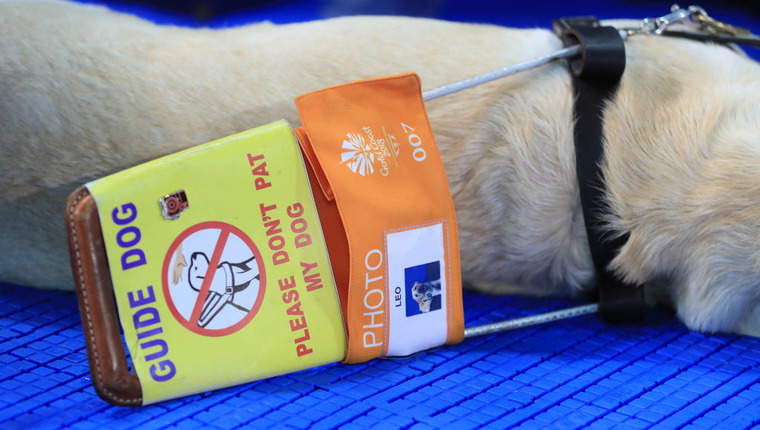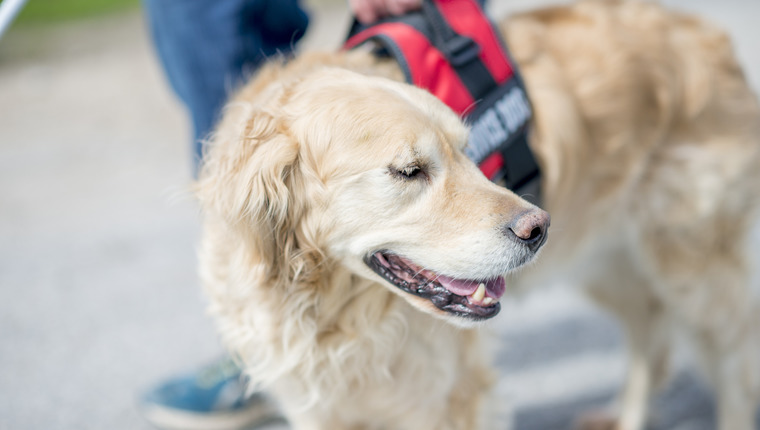
In South Australia, assistance dogs have a new job – and it’s one that’s very important. They’re working with non-verbal autistic children, ABC Australia reports.
Leigh Saunders, an instructor with Guide Dogs Australia, said that one dog was working on the Eyre Peninsula with a Kimba girl with autism, with additional dogs helping other children who are non-verbal.
“What the dog actually does is form a constant in the child’s life, and is security to that child, so they have a little handle on their jacket,” she explained. “The parent will be the main handler … but the child holds that handle.”
The assistance dogs help to keep the children safe, as when the dog stops so does the child. “It keeps them on the pavement off the road, stops them absconding, and builds on the communications and commands we use on the dog that the child learns as well”, Saunders continued.
A Lack of Education
She explained that their dogs wear vests that make them identifiable. “As we start to reach out into more regional areas, people aren’t familiar with the assistance dogs, so people tend to approach them, distract them, offer them food and pet them”, she said.
“What we’re trying to do is to educate people to be more aware, [so] as we start to branch out more, the dogs are able to get on with their work without that distraction.
“So it’s really just making people aware that when you see them out working, just to smile nicely. You can say, ‘Hello’, that’s fine, but just don’t interact with the dogs.”
Volunteers Wanted
Guide Dogs Australia are looking for volunteers to help raise a litter of assistance dogs in Adelaide. The volunteers will need to care for the dogs beginning from when they’re eight weeks old, potentially up until they’re 16 months of age.
“You need to be able to get access to the community so we’re looking for someone that can socialize the dogs … walking them and basically training them,” Saunders explained. “The dog lives with you but it is all about the training and the socialization.”
It certainly sounds like it could be a dream job – if you could bear to part with the pups when they’re ready to become assistance dogs, that is!









